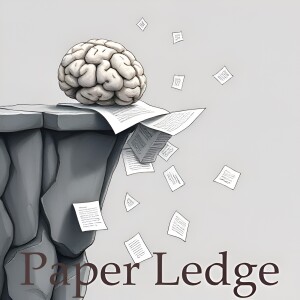

Machine Learning - Apt-Serve Adaptive Request Scheduling on Hybrid Cache for Scalable LLM Inference Serving
Alright learning crew, Ernis here, ready to dive into another fascinating paper that's all about making those AI chatbots we love (or sometimes love to hate) work much faster and more efficiently. We're talking about the tech that powers things like ChatGPT, Bard, and all those other Large Language Model (LLM) applications.
So, imagine you're running a popular restaurant. You've got tons of hungry customers lining up, all wanting your famous spaghetti. That's like the flood of requests hitting an LLM. Now, you want to serve everyone quickly, without making them wait an eternity for their first bite. That "first bite" is like the Time To First Token (TTFT) in the LLM world - how long it takes for the AI to generate the very first word of its response. And keeping that TTFT quick is key.
This paper tackles a major problem: as more and more people use these AI services, it gets harder and harder to keep that initial response snappy. The paper points out that current systems often hit a wall when trying to handle a huge number of requests. They're struggling to increase what the researchers call effective throughput. Think of it as how many happy, spaghetti-fed customers you can serve per hour while keeping them happy with the speed of service.
The researchers found two main culprits slowing things down:
- Memory Hogging: LLMs use something called a KV cache. It's like the chef's mental recipe book, storing all the ingredients and steps for each order. The problem? This “recipe book” takes up a ton of computer memory (GPU memory specifically!), limiting how many requests you can handle at once. Imagine a chef trying to juggle 50 recipe books at once, that's how it is here.
- Rigid Scheduling: Most systems use a “First-Come-First-Serve” approach. Sounds fair, right? But it's like making each spaghetti dish individually, from start to finish, before even starting the next one. Not very efficient!
That's where Apt-Serve comes in. This is the paper's proposed solution, a new framework designed to boost the effective throughput of LLM inference. Think of Apt-Serve as a super-efficient kitchen makeover!
Here’s how it works:
- Hybrid Cache: Apt-Serve introduces a clever hybrid cache system. It's like keeping the most frequently used recipe ingredients pre-chopped and ready to go (a "hidden cache" of reusable information), alongside the full recipe book (the KV cache). This reduces the memory load and lets the system handle larger batches of requests.
- Adaptive Scheduling: Apt-Serve uses a smart scheduling system that dynamically figures out the best way to group requests together. It's like figuring out that you can chop all the onions for five spaghetti dishes at once, saving a ton of time. This is done by the application of an efficient algorithm that optimizes batch composition.
The researchers even came up with a mathematical way to figure out the optimal scheduling strategy. They then built an algorithm that gets pretty close to that ideal, guaranteeing a more efficient process.
So, what were the results? The researchers tested Apt-Serve on real-world data and with LLMs ranging from 13 billion to a whopping 66 billion parameters (that's a big brain!). The results were impressive: Apt-Serve achieved up to an 8.8x improvement in effective throughput compared to other state-of-the-art systems. That's like serving almost nine times as many customers per hour!
“Apt-Serve achieves up to 8.8x improvement in effective throughput compared to the state-of-the-art inference serving systems.”
Why does this matter?
- For everyday users: Faster response times from your favorite AI apps. No more waiting impatiently for ChatGPT to finish writing that email.
- For businesses: The ability to serve more customers with the same resources, saving money and improving user satisfaction.
- For AI researchers: A new approach to scaling LLM inference that could pave the way for even more powerful and efficient AI systems.
This research is a significant step towards making LLMs more accessible and affordable for everyone. It's all about optimizing the engine under the hood so that we can all enjoy the benefits of AI without the frustrating lag times.
Here are some questions that popped into my head:
- Could this hybrid cache system be adapted for other types of AI models beyond LLMs?
- What are the limitations of Apt-Serve, and are there specific types of requests where it might not perform as well?
- How will advancements in GPU technology impact the need for optimizations like Apt-Serve in the future?
Alright learning crew, that's the gist of it! I hope this breakdown made this complex topic a little more digestible. Let me know what you think!
Credit to Paper authors: Shihong Gao, Xin Zhang, Yanyan Shen, Lei Chen
More Episodes
All Episodes>>Create Your Podcast In Minutes
- Full-featured podcast site
- Unlimited storage and bandwidth
- Comprehensive podcast stats
- Distribute to Apple Podcasts, Spotify, and more
- Make money with your podcast












